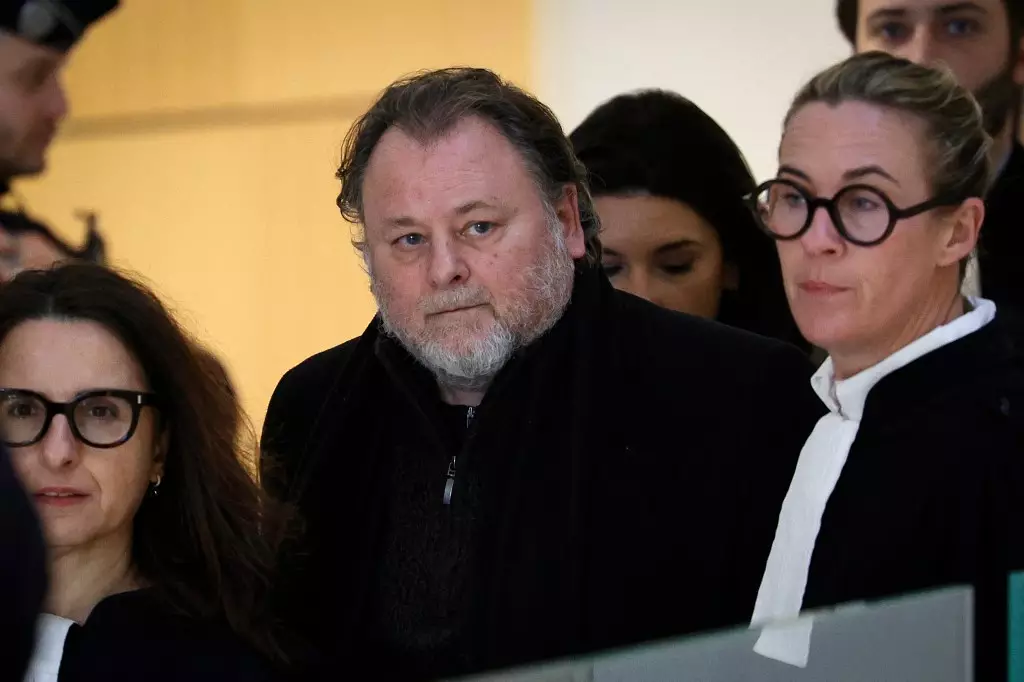In a significant legal development, French filmmaker Christophe Ruggia has received a custodial sentence of two years, enforced under house arrest with an electronic monitoring bracelet, and an additional two years suspended. This sentencing follows a landmark trial stemming from allegations made by actress Adèle Haenel, who publicly accused Ruggia of sexual assault during a Mediapart interview in 2019. The charges allege that Ruggia carried out a disturbing pattern of sexual misconduct over three years, beginning when Haenel was just 12 years old, during the filming and promotional activities for “The Devils.” The case has drawn public attention not only for its specific allegations but for its role in the broader discussions surrounding the accountability of powerful figures in the film industry.
Despite the Paris prosecutor’s office seeking a harsher five-year prison term with three years suspended for Ruggia, the outcome has nevertheless marked a turning point for discussions about sexual violence in France. Convictions based on such serious allegations have historically been challenged by societal norms that often favor abusers, reflecting a culture of silence that has persisted for decades. The public and media scrutiny surrounding the trial is seen as a reflection of the shifting attitudes towards victims who come forward.
The allegations brought forth by Haenel present a troubling narrative that involves not just inappropriate behavior, but a sustained campaign of manipulation and control. Ruggia’s refutations, labeling Haenel’s testimony as mere revenge for not collaborating on subsequent film projects, fell flat in the courtroom and were met with disdain from her legal representation. Such responses highlight a common issue in sexual assault cases: the victim’s credibility is often scrutinized, while the accused are afforded a platform to shift blame and deny wrongdoing.
The emotional turmoil of the trial was evident when Haenel confronted Ruggia during his testimony, an act that encapsulated her ordeal and ongoing trauma. This incident resonated with many observers, illuminating the pain that often accompanies public disclosures of sexual violence. The courtroom drama further solidified the case as a landmark in the #MeToo movement in France and highlighted the difficulties that survivors face when seeking justice in a system that has historically favored their perpetrators.
Adèle Haenel’s courageous decision to speak out in 2019 came during a period when France was still grappling with the implications of the global #MeToo movement. At that time, the French film industry had displayed a shocking lack of support for survivors of sexual misconduct, with Haenel receiving little solidarity from her peers or institutions. The film community’s reluctance was starkly illustrated when Roman Polanski, who carries serious sexual assault allegations against him, received accolades shortly thereafter. This incident, among others, acted as a catalyst for feminist activism, prompting protests and calls for change.
Significantly, the Césars, France’s equivalent of the Oscars, reflected ongoing tensions in the industry. Revisions to their nomination rules now allow for the exclusion of professionals facing sexual violence investigations, marking progress, albeit slow. The outcry following Haenel’s protest at the Césars deepened the dialogue surrounding perpetrators’ rights versus survivors’ needs.
The Future of Conversations on Sexual Violence
The ongoing public dialogue around sexual violence has gained momentum in recent years, particularly following additional high-profile allegations such as those against Benoît Jacquot and Jacques Doillon. Judith Godrèche’s decision to share her experiences earlier this year launched a new wave of #MeToo activism in France, signifying a cultural shift in the nation’s response.
Haenel’s eventual departure from the film industry underscores a pervasive disillusionment with an environment that, for too long, tolerated and sheltered offenders under a cloak of professional camaraderie. Her letter of resignation serves as a powerful reminder of the work that remains in dismantling predatory systems within the arts.
As France continues to navigate the repercussions of these high-profile cases, it is crucial to foster environments where victims believe they can safely come forward without fear of retribution or disbelief. The Ruggia trial stands as a landmark moment, not just for the outcomes of individual cases, but for a society beginning to confront its collective complicity in the culture of silence. This case may mark only the beginning of a broader reckoning that could redefine the relationship between power, privilege, and accountability in French cinema and beyond.
